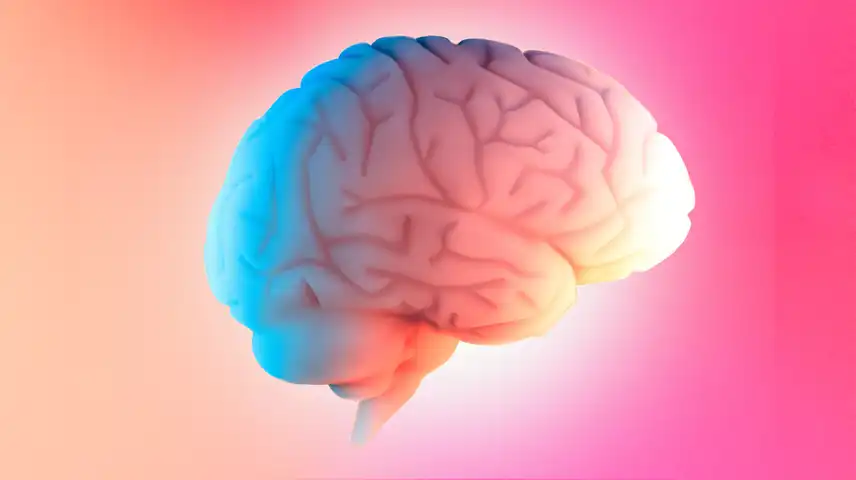If you’re in your 40s and experiencing forgetfulness, mental fatigue, or difficulty concentrating, you’re not alone. Many women in perimenopause report symptoms of brain fog and cognitive decline, making daily tasks feel overwhelming. But what causes this, and what can be done about it?
Brain fog isn’t a medical condition itself, but rather a collection of cognitive symptoms such as memory lapses, lack of mental clarity, and trouble focusing. While these symptoms can be frustrating, understanding their causes can help you take proactive steps to manage them.

The Link Between Perimenopause and Brain Fog
1. Hormonal Fluctuations
The main culprit behind perimenopausal brain fog is shifting hormone levels. Estrogen plays a key role in cognitive function, and as levels fluctuate, so does brain activity. Studies suggest that estrogen influences neurotransmitters like serotonin and dopamine, which are essential for memory and mental sharpness (Weber et al., 2014). A decline in estrogen can slow down brain processing, making it harder to recall words or stay focused.
2. Nutrient Deficiencies and the Role of Supplements
Women in perimenopause are at higher risk for deficiencies in B vitamins, magnesium, and omega-3 fatty acids, all of which are crucial for brain health. Studies indicate that low levels of vitamin B12 and D are linked to cognitive decline (Smith & Refsum, 2016). Supplementing with key nutrients and herbal remedies can help support brain function.
Supplements That Help Combat Brain Fog
1. Bacopa Monnieri – The Memory Booster
Bacopa Monnieri is an adaptogenic herb that has been used for centuries in Ayurvedic medicine to enhance memory and cognitive function. Clinical studies, including research from Swinburne University in Australia, found that Bacopa Monnieri can improve memory recall, processing speed, and mental clarity (Stough et al., 2001).
How to Take It:
- Dosage: 300–600 mg per day, standardized to at least 55% bacosides.
- Best Time: Take it in the morning with food for better absorption.
- Expected Results: Effects are usually seen after 8–12 weeks of consistent use.
2. L-Tyrosine – The Neurotransmitter Support
L-Tyrosine is an amino acid that helps the body produce dopamine, norepinephrine, and epinephrine—neurotransmitters that play a key role in cognitive function and stress management. A study by the University of Maryland Medical Center found that supplementing with L-Tyrosine can help improve memory and mental performance under stressful conditions (Young, 2007).

How to Take It:
- Dosage: 500–2,000 mg per day.
- Best Time: Take 30–60 minutes before breakfast or before mentally demanding tasks.
- Expected Results: Can provide immediate cognitive support, with benefits increasing over several weeks.
3. Omega-3 Fatty Acids – The Brain’s Building Blocks
Omega-3s, particularly DHA and EPA, are essential for brain health. A Harvard Medical School study found that women with higher DHA levels had better cognitive function and reduced risk of Alzheimer’s disease (Freund-Levi et al., 2006).
How to Take It:
- Dosage: 1,000–2,000 mg of combined DHA and EPA per day.
- Best Time: Take with meals, preferably with healthy fats for better absorption.
- Expected Results: Cognitive benefits are typically noticed within 6–12 weeks.
4. Rhodiola Rosea – The Mental Fatigue Fighter
Rhodiola Rosea is an adaptogen known to help combat mental fatigue and improve cognitive resilience. A study from the University of Pennsylvania found that individuals who took Rhodiola experienced better concentration and reduced mental fog (Shevtsov et al., 2003).
How to Take It:
- Dosage: 200–600 mg per day, standardized to 3% rosavins.
- Best Time: Take in the morning or early afternoon to prevent interference with sleep.
- Expected Results: Improvements in focus and mental energy can be seen within 2 weeks.
5. Lion’s Mane Mushroom – The Nerve Regenerator
Lion’s Mane is known for its ability to support nerve growth factor (NGF), which plays a crucial role in neuroplasticity and cognitive function. Research from Tohoku University in Japan found that taking Lion’s Mane led to improved memory and focus in older adults (Mori et al., 2009).
How to Take It:
- Dosage: 500–3,000 mg per day.
- Best Time: Take in the morning with food.
- Expected Results: Benefits may take 4–6 weeks to appear.
Lifestyle Changes to Maximize Supplement Benefits
While supplements can provide powerful cognitive support, they work best when combined with a healthy lifestyle. Here are key strategies to enhance their effectiveness:
1. Optimize Your Diet for Brain Health
- Eat foods rich in omega-3s (salmon, walnuts, flaxseeds) to support brain function.
- Increase antioxidants (berries, dark chocolate, leafy greens) to reduce inflammation.
- Stay hydrated, as dehydration can impair cognitive abilities and make brain fog worse.
2. Prioritize Quality Sleep
- Maintain a consistent sleep schedule.
- Reduce screen time before bed to improve melatonin production.
- Try magnesium supplements or herbal teas like chamomile and valerian root to promote relaxation.
3. Exercise Regularly
- Engage in aerobic exercise to boost blood flow to the brain.
- Take frequent movement breaks throughout the day to enhance circulation and prevent mental fatigue.
4. Manage Stress Effectively
- Practice mindfulness meditation to lower cortisol levels.
- Utilize journaling or gratitude exercises to foster a positive mindset.
- Spend time in nature, as outdoor activities can lower stress and improve brain function.
Final Thoughts
Brain fog and cognitive decline during perimenopause can be significantly improved with the right combination of supplements and lifestyle changes. Bacopa Monnieri, L-Tyrosine, Omega-3s, Rhodiola Rosea, and Lion’s Mane are among the most research-backed supplements for enhancing mental clarity, memory, and focus.
If you’re struggling with brain fog, consider incorporating these supplements into your routine. Start with one or two, track your progress, and adjust as needed. Over time, these natural remedies can help restore cognitive function and improve overall well-being. However, if you have any medical conditions or are unsure whether these supplements are right for you, always consult a doctor before use.







